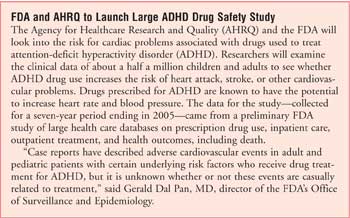US Pharm.
2007;32(10):72.
FDA Warns Melanotan II Maker
The FDA issued a
Warning Letter to Brian Manookian, owner of Melanocorp, Inc., Hendersonville,
Tennessee, for the illegal sale and marketing of Melanotan II as a skin cancer
preventative. The drug is not FDA approved, and the agency recommends that
consumers using the product stop using it and consult their health care
provider if they have experienced any adverse events that could be related to
its use. The drug is advertised on Melanocorp's Web site.
"This product is being
marketed and sold illegally as a preventative against skin cancer and as a
tanning agent," said Steven Galson, MD, MPH, director of the FDA's Center for
Drug Evaluation and Research.

Stronger Warnings for
Diabetes Drugs
Manufacturers of
certain drugs used to treat type 2 diabetes have agreed to add a stronger
warning for the risk of heart failure. The new boxed warning advises health
care professionals to examine patients carefully for the signs and symptoms of
heart failure, including excessive, rapid weight gain, shortness of breath,
and edema after starting drug therapy. The warnings affect the
thiazolidinedione class of antidiabetic drugs, which includes rosiglitazone
(Avandia), pioglitazone (Actos), rosiglitazone and glimepiride (Avandaryl),
rosiglitazone and metformin (Avandamet), and pioglitazone and glimepiride
(Duetact).
The FDA review of adverse
events reports found significant weight gain and edema cases, which are heart
failure warning signs. The FDA said that in some cases continuation of therapy
has been associated with poor outcomes, including death.
"This new boxed warning
addresses FDA's concerns that despite warnings and information already listed
in the drug labels, these drugs are still being prescribed to patients without
careful monitoring for signs of heart failure," said the FDA's Steven Galson.
New Sunscreen Rules on
Horizon
The FDA proposed a
new regulation that sets standards for formulating, testing, and labeling OTC
sunscreen products with ultraviolet A (UVA) and ultraviolet B (UVB)
protection. The proposed regulation would create a consumer-friendly rating
system for UVA products to help consumers identify the level of protection
offered by designating them with one, two, three, or four stars. The numbered
levels would represent low protection, medium protection, high protection, and
the highest available protection, respectively.
UVA rays are responsible for tanning and UVB rays
cause sunburn, both of which increases skin cancer risk. If a sunscreen does
not provide at least a low level of protection, the FDA is proposing that the
product bear a "no UVA protection" marking on the front label. In addition, to
convey that sunscreens are only part of the protection regimen, a warnings
statement in the drug facts box will be required stating that "UV exposure
from the sun increases the risk of skin cancer, premature skin aging, and
other skin damage. It is important to decrease UV exposure by limiting time in
the sun, wearing protective clothing, and using a sunscreen."
The regulation would also increase the
highest sun protection factor (SPF) value that the agency recognizes from SPF
30 to SPF 50+. The FDA is accepting comments on the rule until November 26,
2007.
To comment on this article, contact
editor@uspharmacist.com.






